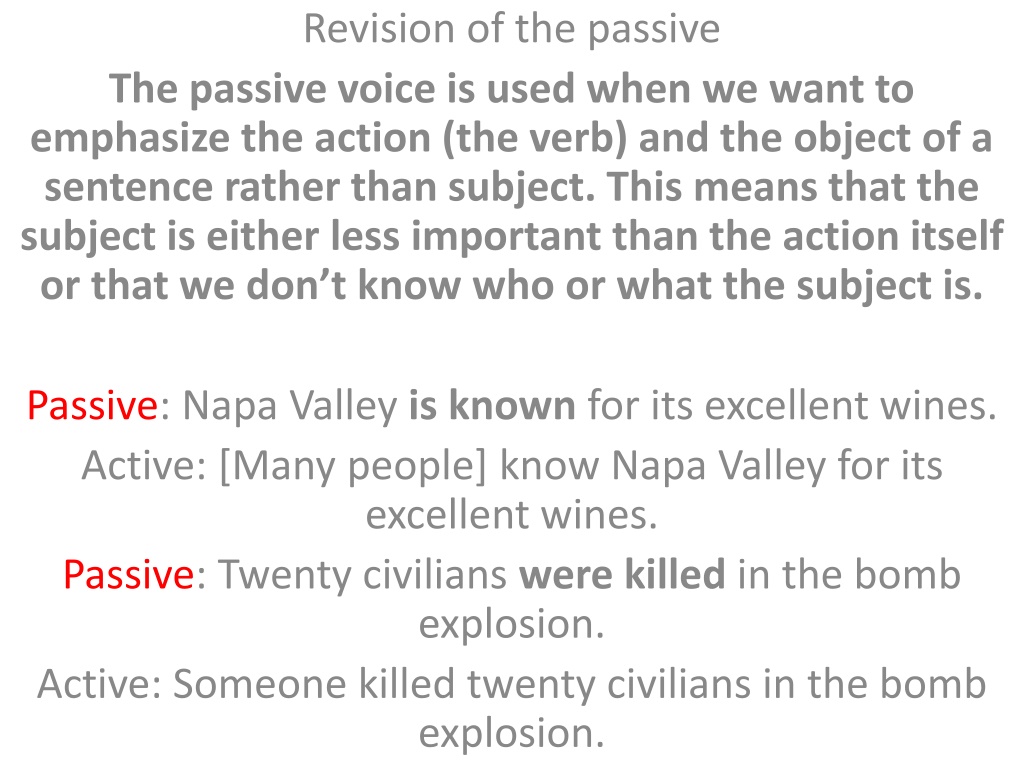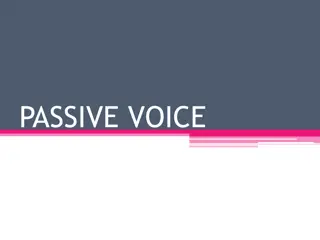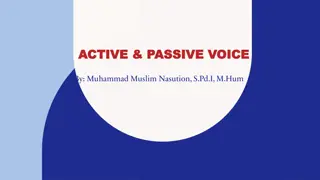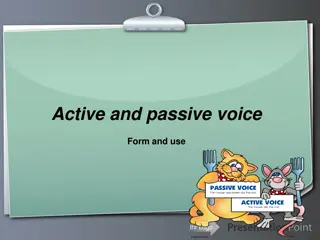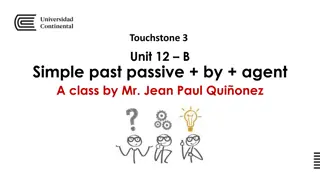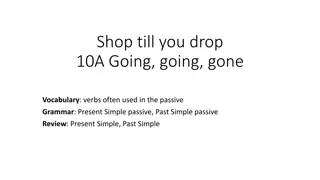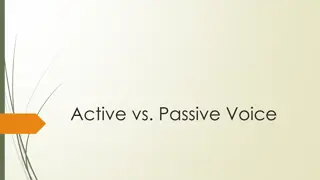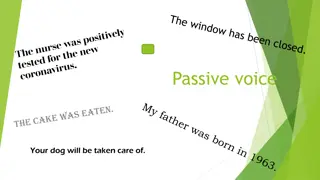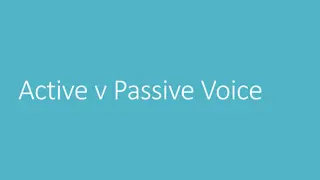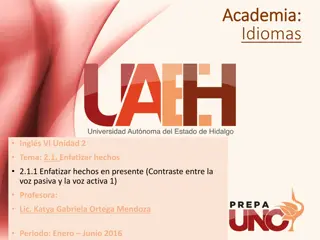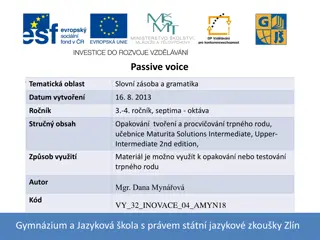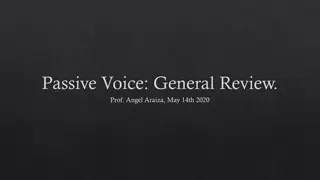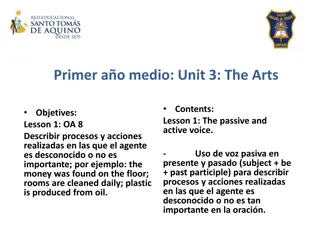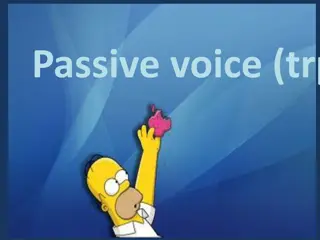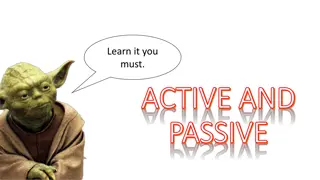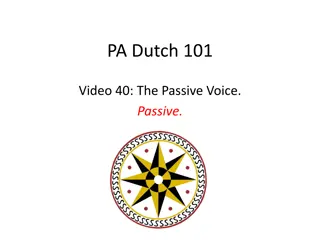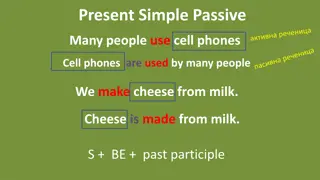Understanding the Passive Voice in English Writing
The passive voice in English writing is utilized to emphasize the action and object of a sentence rather than the subject. It is helpful for shifting the focus of a sentence, especially when the subject is less important or unknown. Learn about the passive voice, verbs with two objects, passive in subordinate clauses, and when to use passive construction.
Download Presentation

Please find below an Image/Link to download the presentation.
The content on the website is provided AS IS for your information and personal use only. It may not be sold, licensed, or shared on other websites without obtaining consent from the author. Download presentation by click this link. If you encounter any issues during the download, it is possible that the publisher has removed the file from their server.
E N D
Presentation Transcript
Revision of the passive The passive voice is used when we want to emphasize the action (the verb) and the object of a sentence rather than subject. This means that the subject is either less important than the action itself or that we don t know who or what the subject is. Passive: Napa Valley is known for its excellent wines. Active: [Many people] know Napa Valley for its excellent wines. Passive: Twenty civilians were killed in the bomb explosion. Active: Someone killed twenty civilians in the bomb explosion.
Verbs with two objects Some verbs that have two objects can make two different active sentences, and so two different passive sentences too: Give Active: He gave me the book / He gave the book to me. You can choose either of the two objects to be the subject of the passive sentence. Passive: I was given the book (by him)/ The book was given to me (by him). Other verbs like this are: ask, offer, teach, tell, lend, promise, sell, throw.
Do these exercises: 1) John gave a bar of chocolate to Jill (start with 'Jill'). 2) John gave a bar of chocolate to Jill (start with 'a bar of chocolate'). 3) I lent a pencil to Graham (start with 'Graham'). 4) I lent a pencil to Graham (start with 'a pencil'). 5) Fiona told the truth to Julian (start with 'Julian').
The passive in subordinate clauses You can make the passive in a subordinate clause that has a subject and a normal conjugated verb. This is really the same as a normal passive. Active: I thought that Mary had kissed John. Passive: I thought that John had been kissed by Mary. Active: He knew that people had built the church in 1915. Passive: He knew that the church had been built in 1915. You can also make the passive using a passive gerund or a passive infinitive in the same place as a normal gerund or infinitive. The child loves being cuddled. She would like to be promoted.
1) I want someone to love me. 2) It seems that someone cleaned the office on Tuesday. 3) Amy thinks that someone is reading to her son. 4) I don't like people seeing me in my pyjamas. 5) My little niece loves people chasing her. 6) I understand that someone hit Greg. 7) Is it the case that someone sent the report on time?
When we want to change the focus of the sentence: When should we use the Passive? The Mona Lisa was painted by Leonardo Da Vinci. (We are more interested in the painting than the artist in this sentence) When who or what causes the action is unknown or unimportant or obvious or 'people in general': He was arrested (obvious agent, the police). My bike has been stolen (unknown agent). The road is being repaired (unimportant agent). The form can be obtained from the post office (people in general). In factual or scientific writing: The chemical is placed in a test tube and the data entered into the computer. In formal writing instead of using someone/ people/ they (these can be used in speaking or informal writing): The brochure will be finished next month. In order to put the new information at the end of the sentence to improve style: Three books are used regularly in the class. The books were written by Dr. Bell. ('Dr. Bell wrote the books' sound clumsy) When the subject is very long: I was surprised by how well the students did in the test. (More natural than: 'how well the students did in the test surprised me')
Extra exercises https://www.perfect-english- grammar.com/passive-exercise-5.html
